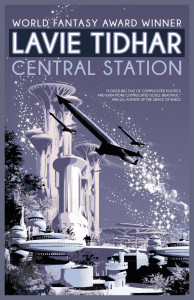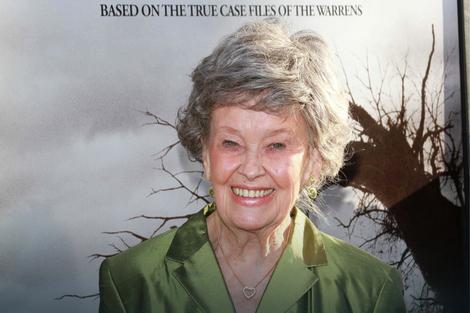by Kelly Cherry
I am now older than I ever expected to be, though not as old as I hope to get. What this means in terms of my reading is that I am often exhausted by the work by younger writers. Yes, they are talented. Yes, I appreciate their accomplishments. Yes, I’m interested in the changes they are making in the literary landscape. But sometimes I want to pull a sheet over my head and rest my eyes. And my brain.
Contemporary fiction seems to have become snappy and cute. Now, I am not exactly against snappy and cute. In the forties and fifties there were a lot of movies that relied on snappy and cute, and they were fun to watch. Also, it’s true that as people age, they begin to struggle with the idea of death in a more personal way than they did a few decades back, and surely that tends to shorten the laughs, although continuing to be creative, whether as a fiction writer or a poet, composer or visual artist, craftmaker or glassmaker, makes the creating person smile again. And again. Doing snappy and cute can sometimes be a lifesaver.
So perhaps there’s really nothing to object to. We do what we can as long as we live, and we love what we do. Moreover, no one is required to read new work. One can always write one’s own new work. So stop reading new work simply because it’s new work, say I to myself.
But the world moves on. It changes. And changes almost impossible to imagine are quite likely forthcoming, given AI and the galloping pace of technology. Not to mention global warming and growing populations. And the exploration of space. And the threats of various pandemics.
Are you beginning to feel slightly sleepy? Has it occurred to you that you feel rather as if you are balancing numerous weighty bundles atop your head?
And what about that particular bundle that is Donald Trump? That bundle you so want to set aside? Including his atrocious “policies,” such as denying women the rights to their own bodies.
But we began with contemporary fiction, so I ought to return to it. It seems to me that I have recently read a number of American novels that are just too cute for words. Sentences are packed with more information than any reader can remember, every description so detailed that to visualize it requires time, and by the time you’ve visualized the details, you’ve forgotten them.
I am absolutely not saying that these books are bad or confusing. In fact, I admire their ingenuity, their remodeling of syntax, their collaborating, extended clauses.
What I am saying is that I miss the long drawl of the storyteller. Thomas Mann layered his novels with questions and answers that make us think. I just finished reading Neil Jordan’s book Shade, and though I have long loved his work, Shade, narrated by a dead woman, took my breath away: the lush sentences, the lengthy conversations, the Irish rhythms: nothing rushed, nothing left out, time to absorb every interesting, often captivating, detail. Or remember Joyce Cary: his novels are hilarious and allow us time to laugh to our hearts’ content. Funny doesn’t have to be fast.
I like funny. I like quirky. I like, sometimes, a touch of cuteness. But I also want to think. I want to understand these words that fly by me at the speed of light. And truthfully, I sometimes wonder if the speed is meant to obscure a lack of faith on the writer’s part. The faster we go, the less we actually see.
Then again, I worry that maybe it’s just me. Maybe I’m too slow.
I wouldn’t feel right exposing writers whose sentences smash into each other like cars on a highway, which, after all, may on occasion raise the tension in a story or slip something shocking into it so slyly it registers with the reader only after the reading. These are useful conceits.
Then again again, read this from Shade:
“I would blame her, for many years, for a state of things engendered by him. His corduroy trousers, his tweed jacket, the military belt I loved to finger with its copper clasp, the linen shirt with its blue and red tracing pulled tight beneath it, the studded shoes that touched the gravel as he helped her out, all concealed something as banal and Victorian as a secret. And secrets, he should have known even then, will always out.”
This straightforward paragraph pulls us so deeply into the book that the reader can only keep reading. It enthralls. It covers us with a hood that leads us blindly into the plot. Jordan is patient, not in a hurry to spill everything; instead, he takes the reader by the hand and, as if the reader cannot see for herself or himself, shows every single and singular detail and its relation to the rest of the book. In the space of a paragraph, we find ourselves in the very early twentieth century, with its wars to come, the changes it will wreak, the lingering demise of the Victorian era. The reader aches to know what will come, wants to breathe the new year’s air, and at the same time recognizes the boundaries of manners and morals that will either hold or break.
One paragraph, not from the first or last page, undramatic in itself, but enfolding: these words enfold us such that we are reading not at a distance but in the midst of the events that have occurred, are occurring, and those that may someday yet occur. Jordan makes us live in the present tense even as time is passing. That’s what I mean by the long drawl. It takes us to a kind of heaven, the heaven in which we relax on a cloud, happily reading a marvelously convincing book.

 Kelly Cherry’s most recent poetry collection is Quartet for J. Robert Oppenheimer. She has also recently published Twelve Women in a Country Called America: Stories (Press 53); A Kelly Cherry Reader (SFASUP); A Kind of Dream: Stories (U of Wisconsin); and a poetry chapbook titled Physics for Poets (Unicorn Press). Find out what she’s published in AGNI here.
Kelly Cherry’s most recent poetry collection is Quartet for J. Robert Oppenheimer. She has also recently published Twelve Women in a Country Called America: Stories (Press 53); A Kelly Cherry Reader (SFASUP); A Kind of Dream: Stories (U of Wisconsin); and a poetry chapbook titled Physics for Poets (Unicorn Press). Find out what she’s published in AGNI here.
Advertisements Share this:





